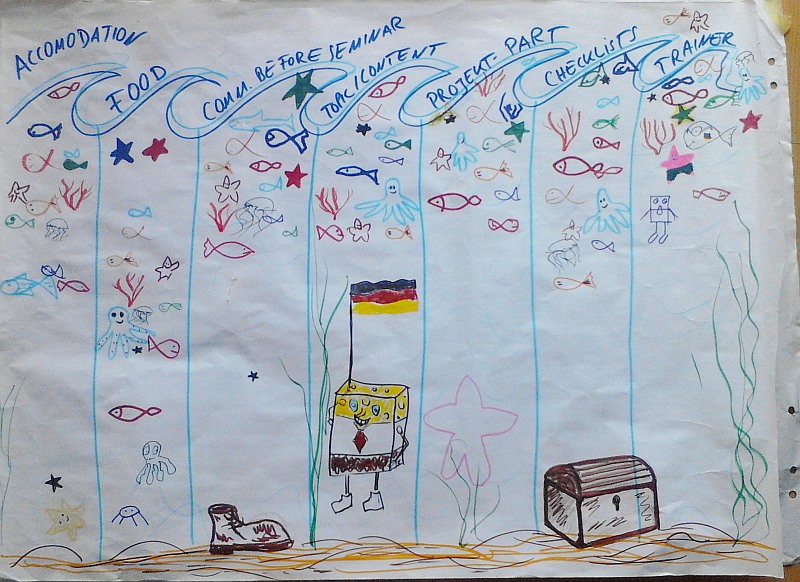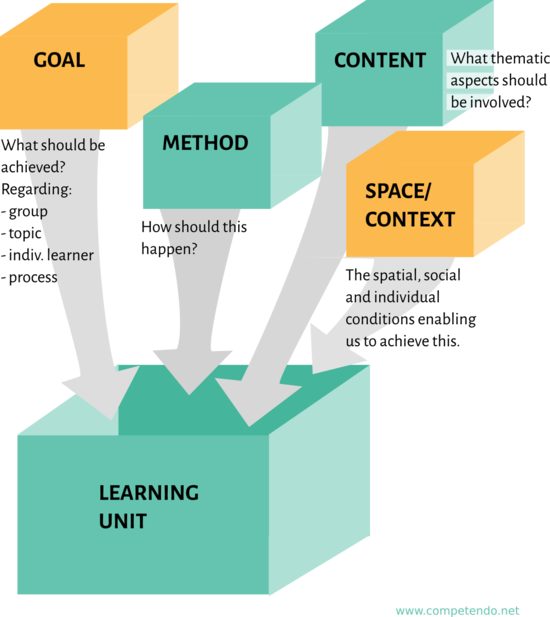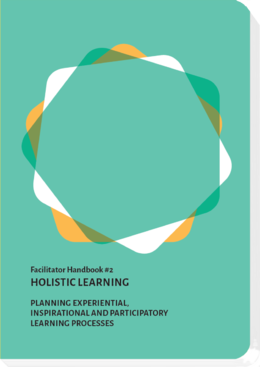Evaluation
![]() N. Zimmermann/ H. Fahrun
N. Zimmermann/ H. Fahrun
Contents
Focuses of reflection
Goal Achievement
|
Methodology
|
Content
|
Space/Context
|
Competency development
|
Management
|
Mixing methodologies for reflection
Take care for a range of different ways to assess and interpret the needed data - the findings and evaluation from your participants. The principle of method mix is valid as well for evaluation. Offer your participants variation in terms of
Method Mix: Reflection and Evaluation
Style
- Choose appropriate methods for your target group
Confidentiality:
- Anonymous, half-public, or public
Group Relation
- In a plenum, in other collaborative ways, or in individual work
Addresses different senses
- Individually speaking, dialogue, writing, or moving
Quantitative or qualitative?
How deep should or needs your evaluation go? When you want to know how your participants feel, you ask them to show you “thumb up/down”. Afterwards you know that ten persons feel well and three of them not so well. Or you ask detailed qualitative questions, with which you find out why they feel themselves like that or what they need to feel better. You use a quantitative and a qualitative method – both of them are all right, when they suit the situation, they often complement each other.
Documentation of the Results
Choosing your method you should also consider the form, in which you need results. Language, pictures, photos… Many things are possible and they can complete a particular situation or also contrast it. It is important with most methods to formulate a question as concretely as possible.
As self-evaluation is crucial for independent learning, we include here as well methods, that help indicviduals to document learning outcomes, inspirations, insights in and individual way.
Selected Methods and Articles
- Evaluation
- Reflection and Evaluation
- Facilitator: Self-Assessment
- Evaluation Methods
- Checklist: Evaluation questions
- Learning Curve
- A letter from the past
- From now to tomorrow
- Personal Portfolio
- Project Impact on Community
- Decision cake
- Targeted feedback
- Bar Graphs
- Conflict tree
- Color Diary
- Spoken Word Poetry
- Checklist: Self-assessment Working Culture
- Constructive Feedback
- Touch Somebody Who...
Example: Aquarium
 A cooperative evaluation in a training. Each participant marks his or her fish. Near the surface means +, at the ground means -.
A cooperative evaluation in a training. Each participant marks his or her fish. Near the surface means +, at the ground means -.








